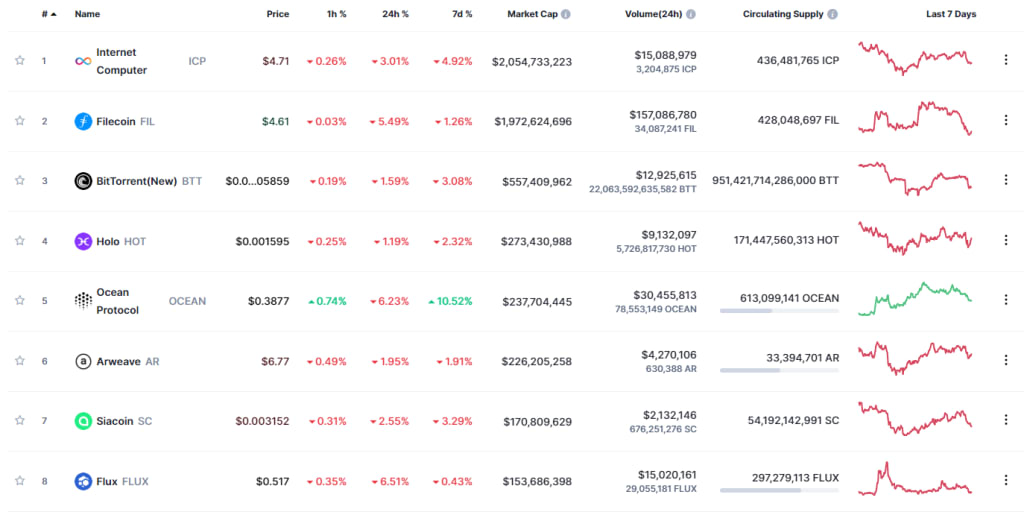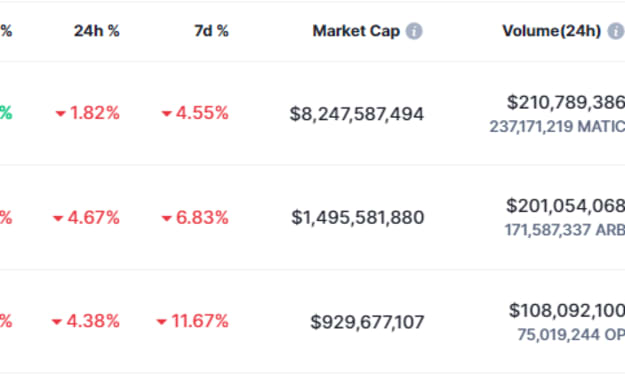Decentralized Storage
What is decentralized storage and how does it work?

Decentralized storage is a concept that aims to revolutionize the way data is stored and accessed by leveraging blockchain technology. Unlike traditional centralized storage solutions, decentralized storage systems distribute data across multiple nodes and utilize cryptographic techniques to ensure security, privacy, and redundancy. By removing the need for a central authority or single point of failure, decentralized storage offers enhanced data integrity, availability, and censorship resistance. In this article, we will explore the concept of decentralized storage and provide examples of prominent projects in the space.
InterPlanetary File System (IPFS): IPFS is a widely known and widely used decentralized storage protocol that allows users to store and access files in a distributed manner. IPFS operates on a peer-to-peer network, where files are divided into smaller content-addressable chunks and distributed across multiple nodes. Each chunk is identified by a unique cryptographic hash, making content retrieval efficient and reliable. IPFS is designed to be a global, decentralized file system that can serve as a foundation for various applications, such as content sharing, distributed applications, and data archival.
Filecoin: Built on top of IPFS, Filecoin is a decentralized storage network that incentivizes users to contribute their storage space and bandwidth in exchange for cryptocurrency rewards. Filecoin introduces a marketplace where users can rent out their spare storage capacity to others who need storage services. The network utilizes blockchain technology and smart contracts to facilitate secure and verifiable storage transactions. Filecoin's approach aims to create a robust and decentralized storage ecosystem by providing economic incentives to participants.
Storj: Storj is a decentralized cloud storage platform that allows users to store their files securely across a network of nodes. It employs a distributed network of storage nodes that collaborate to store and retrieve data. Storj utilizes end-to-end encryption, ensuring that only the data owner has access to their files. Users pay with the native Storj token to incentivize node operators and ensure the availability of storage space. Storj aims to provide a cost-effective, reliable, and privacy-focused alternative to traditional cloud storage solutions.
Sia: Sia is a blockchain-based decentralized storage platform that enables users to rent out their unused storage space or lease storage from others. The platform splits user data into smaller encrypted pieces, which are then distributed across a network of storage nodes. Sia's smart contracts ensure data integrity, availability, and redundancy. Users pay with the Sia cryptocurrency for the storage services they consume. Sia offers competitive pricing and aims to provide a secure and private storage solution for individuals and businesses.
MaidSafe: MaidSafe stands for "Massive Array of Internet Disks - Secure Access For Everyone." It is an ambitious project that aims to create a fully decentralized and autonomous network for storage and computation. MaidSafe utilizes a unique consensus algorithm called Proof of Resource, which allows participants to contribute their computing resources to the network in exchange for the native cryptocurrency, Safecoin. The network leverages a distributed file system called the Safe Network, which provides secure and privacy-focused data storage and sharing.
These examples represent just a fraction of the diverse range of projects exploring decentralized storage. Each project brings its unique approach to address the challenges of traditional centralized storage solutions, such as high costs, data privacy concerns, reliance on single providers, and vulnerability to censorship and data loss. By harnessing the power of blockchain and peer-to-peer networks, these projects are pushing the boundaries of what is possible in the realm of data storage.
Decentralized storage has the potential to disrupt traditional storage models by offering increased security, privacy, and control over data. It enables individuals and organizations to store and access their data in a distributed and resilient manner, removing the reliance on centralized entities. Moreover, by incentivizing participants to contribute their resources, decentralized storage networks can provide a cost-effective alternative to traditional storage providers.
As the field of decentralized storage continues to mature, we can expect further innovation, scalability improvements, and integration with other blockchain applications. The development of standardized protocols and interoperability between different decentralized storage solutions may pave the way for a more cohesive and interconnected ecosystem. With the growing demand for secure and privacy-focused data storage solutions, decentralized storage projects are likely to play a crucial role in shaping the future of the digital storage landscape.





Comments
There are no comments for this story
Be the first to respond and start the conversation.